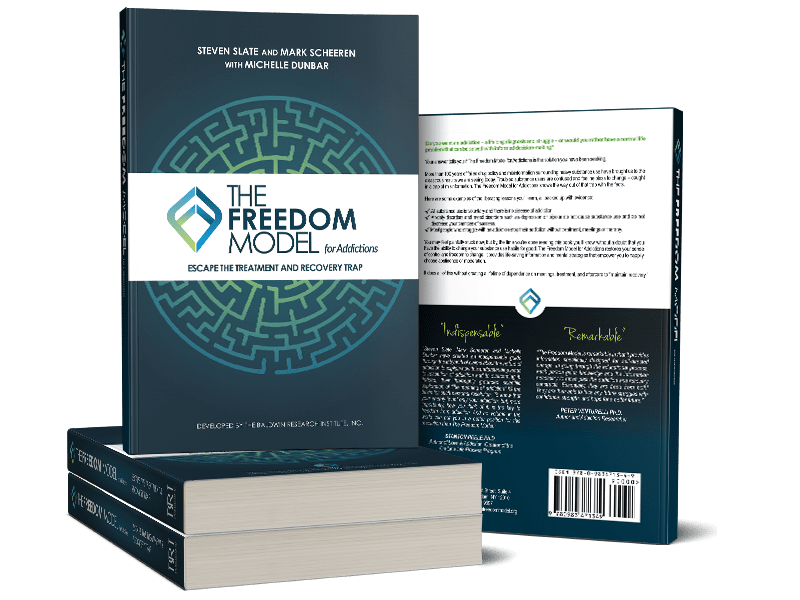You Asked, We Answered
Addiction Questions
What causes people to lose control of their liquor consumption or their drug intake level?
In a word – mindset. In other words, their beliefs surrounding their use and how much they believe they have control. You see, no one is actually out of control until they believe they are. Of course if someone passes out from drinking (is literally unconscious) or overdoses, they are then out of control – that is obvious. But any stage of intoxication prior to that level, the individual is still in control of their thoughts and is therefore responsible for their actions and behaviors. But because there is so much addiction mythology surrounding the concept of “loss of control”, we needed to spend many pages plucking this concept apart. Here is a brief excerpt from The Freedom Model that helps explain some of the research regarding the loss of control theory:
“The mindset of the substance user is what matters—the thoughts, beliefs, and expectancies. So-called addicts and alcoholics don’t literally lose control of their substance use. It is a way they learn to think of their substance use that then cognitively affects their habits and reactions to substances going forward.
We see forms of this phenomenon occur in hospitals across the globe every day. Thousands are provided intravenous opiate medications for pain, and many of them are given these drugs for weeks or even months depending on the condition or surgery they have undergone. After the period of acute pain has subsided because of the body healing, they are taken off these medications by their doctors or they stop taking them on their own because they feel they are no longer needed. In the majority of these people, they do not seek opiates because they never built a preference for them. In many of the long-term cases, these patients even experience intense withdrawal when the opiates are stopped. Yet, with no knowledge that it is withdrawal symptoms they are experiencing, they do not mentally equate getting relief from these symptoms with taking more of the substance. They simply feel like they have the flu or a cold. After the typical 72-hour period, their symptoms abate, and they move on with their lives no worse for the wear. It’s the myth of a substance’s “addictiveness” that drives people to believe using opiates causes uncontrollable use and withdrawal symptoms drive more use. Without knowledge of the myth, people easily move past opiate use and the withdrawal just the same. Simply stated, substances don’t drive use, a personal preference for substances does. The belief in the addictiveness myth drives this preference to new heights. Without that myth intact, people never get “addicted.”


0 Comments